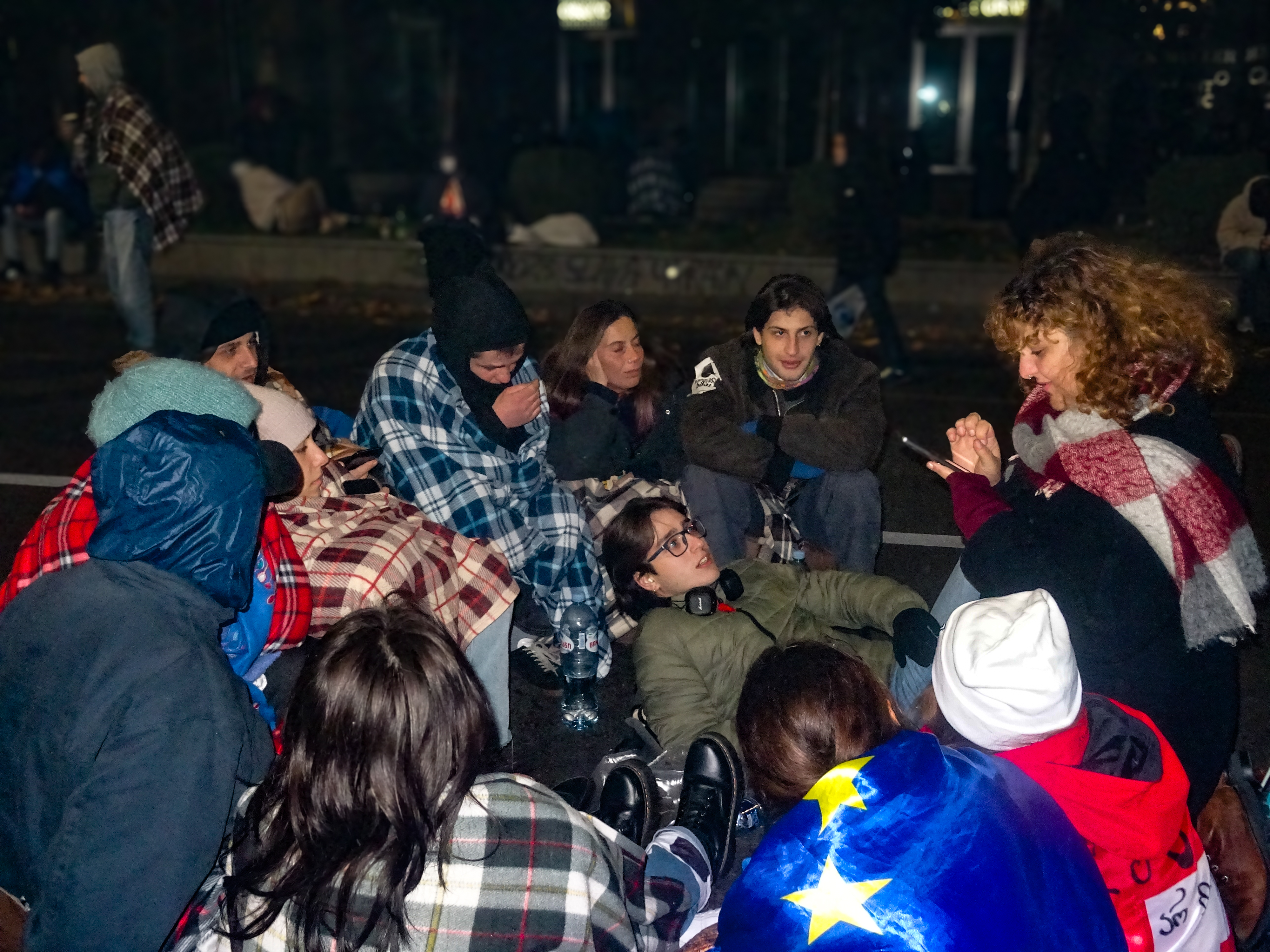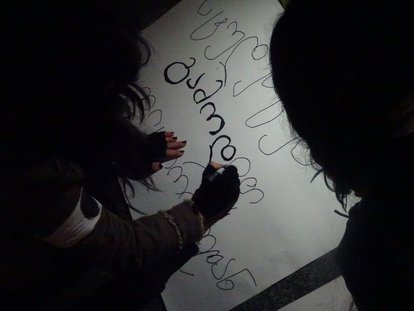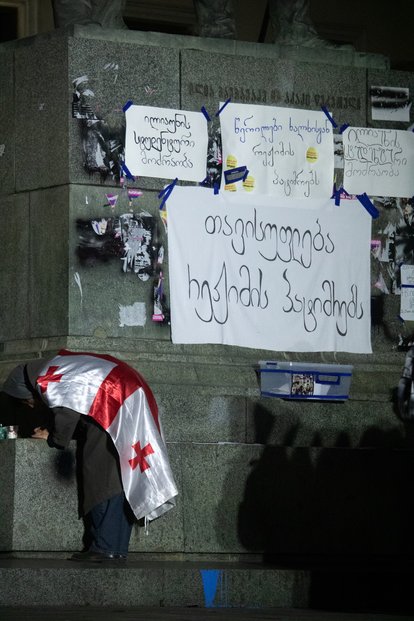Georgia's European Future
Georgia after the elections

Protest action: joint protest by students from Ilia State University in front of parliament on November 24, 2024.
© Emilia HuppenbergerSince the parliamentary elections on October 26, 2024, the lives of many Georgians have changed significantly. People are constantly coming together to protest for a democratic future. Since the “Georgian Dream” party, which claimed victory in the elections, announced on November 28, 2024 that it was suspending all accession talks with the European Union, young people are all the more afraid of losing their democratic future in the European Union.
Students at Ilia State University in Tbilisi joined together to form a protest movement and stand up for their democratic future. As an intern at the Friedrich Naumann Foundation in Tbilisi, I was able to speak personally with Anni and Davit, who are both part of the student protest movement.

Protest action: joint writing of protest signs on November 18, 2024 by students from Ilia State University in front of Tbilisi
© Emilia HuppenbergerThe Ilia State University Movement
On November 14, 2024, students came together in Batumi for the first time to protest against Georgia's rigged elections and for new elections with their sit-in. They also explicitly addressed the other students in the country and called on them to join their protest. Numerous student movements from different universities in Tbilisi came together and joined the protest movement. Davit, a 19-year-old student who is part of the movement from Ilia State University, explains that this was also an “act of solidarity”, as they found themselves in the same difficult situation as their fellow students in Batumi.
Since then, the 25 or so students have been meeting regularly to plan protest actions together and learn about how peaceful protest against authoritarian regimes can take place, reports Anni, a 19-year-old student at Ilia State University. She says that she feels responsible for standing up for the freedom of her country and the imprisoned protesters: “You can't just use your freedom for nothing when you have so much potential, when there are so many things we can do.”

Protest action: A protester writes a letter to detained protesters on Rustaveli Avenue on January 6, 2025, organized by the protest movement of students from Ilia State University.
© Emilia HuppenbergerPeaceful Protest as a Means of Resistance
Davit is certain that the strength of their actions can be found in their peacefulness. He explains to me that there is no way they would use a violent form of resistance, “because using violence is just a step into the past.” Davit believes in the power of peaceful protests, “as they have a higher chance of winning against authoritarian regimes.” Maria J. Stephan and Erica Chenoweth also published in their study “Why Civil Resistance Works: The Strategic Logic of Nonviolent Conflict” in 2008 that peaceful resistance was successful in 53% of cases, in contrast to violent resistance, which was only successful in 26% of cases. Therefore, the protest movement at Ilia State University wants to focus mainly on how resistance can take place in different ways and which forms of it can prove to be effective. “We are always ready and learning new things about other countries' experiences with protests like ours,” says Davit. The student says that there is a long way to go, but that there are many different strategies to achieve success, referring to a list of 198 different methods of peaceful protest.
This is why the students at Ilia State University are also carrying out very different protest actions. They strike, organize marches, use artful protest, give the opportunity to write letters to detained protesters at the protests, and try to gain reach on social media. For two weeks now, the protest movement has been occupying Ilia State University to protest for the release of all imprisoned protesters and new elections. When I ask Anni whether she can imagine a point at which she would no longer take to the streets, she replies: “At the moment, I don't see anything. Everything they mess up only motivates me more. If they do something bad, my inner focus would only get stronger.” Anni and Davit are both sure that by protesting peacefully in different ways, they will achieve what the students of the student movement are demanding: new elections, a democratic Georgia and a future in the European Union.
Emilia Huppenberger
Sources
- Students at Batumi’s Shota Rustaveli University Stage Sit-in Against Fraudulent Election
- Student Protests in Batumi Spark Solidarity Across Georgian Universities
- McCarthy, Ronald M., Gene Sharp, and Brad Bennett. Nonviolent Action: A Research Guide. Routledge, 2013.
- Stephan, Maria J., and Erica Chenoweth. Why Civil Resistance Works: The Strategic Logic of Nonviolent Conflict. International Security 33.1 (2008): 7-44.
